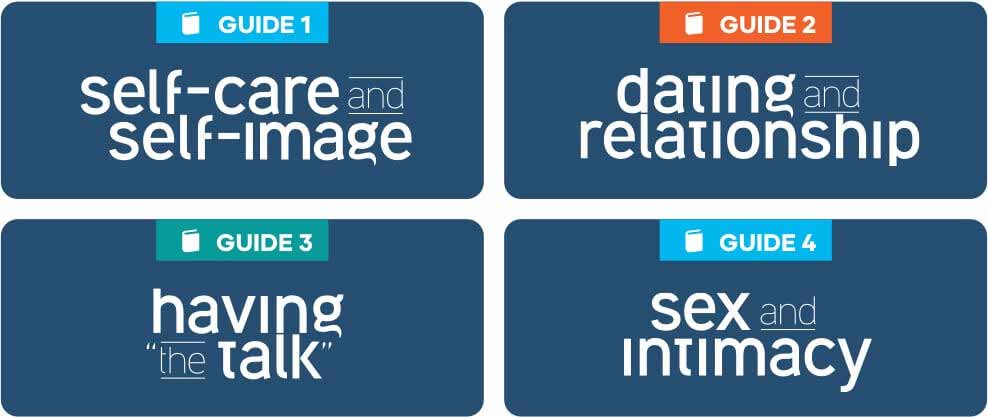Can you get herpes from drinking after somebody? Can you get herpes from sharing towels? From taking a bath with someone? Can you get herpes from blood? Can you get herpes from toilet seats? Can you get herpes from shaking hands or cuddling?
The clear and resounding answer to all of these questions?
Nope.
You can get herpes only from skin-to-skin contact. You can get herpes even when there are no visible signs of herpes on the skin. It’s known as “viral shedding.” And the kind of skin-to-skin contact we’re talking about is for the most part genital-to-genital or mouth-to-genital (mouth-to-mouth oral herpes is mostly passed when an active outbreak is occurring or is about to occur). Herpes can only be transmitted through easy access into the body, therefore some sort of superficial cut, abrasion or mucous membrane must be present in order to allow access to the virus. And that kind of transmission generally takes place through the rubbing and friction that comes with sex (either oral or genital). The likelihood of passing herpes by simply touching skin is unlikely.
If you abstain from sex during herpes outbreaks, the risk of passing it during herpes dormancy is 3-8%, the risk is greater when passing herpes from male to female (Warren, Terri J. "Counseling Patients With Genital Herpes"). This risk is inherent in all sexual activity, even with condoms since the site of the outbreak/shedding isn’t always covered. For more facts and statistics, download the free e-book and handouts.
Are you worried that you might have contracted herpes? If you’re having a herpes outbreak, go to your doctor to get a swab. It’s helpful to know whether it’s HSV-1 or HSV-2. Soon after contracting herpes you will develop the antibodies to be able to find out which type you have via a herpes blood test. This is a convenient way to find out without having to rush to the doctor during a herpes outbreak.
"What about spreading herpes to other parts of my body?"
It’s actually difficult to spread herpes manually from one part of the body to another (also known as auto-inoculation) after your body builds up antibodies after the first 6-12 months since infection. (If your infection is new, just be careful when touching yourself in the area where your initial herpes outbreak occurred and always wash your hands after touching it.)
Keep in mind that for some people, the virus shows up in the exact same spot for every herpes outbreak, while for other people, their outbreaks move around a bit (the virus might use a different nerve pathway (aka "herpes highway) to get to the surface of the skin). For those where it moves around a bit, this is less likely a case of auto-inoculation and more likely because the virus took a different shortcut to the skin. In order for you to manually move the virus to other parts of your body, you’ll need to transfer some of the fluid from within a herpes sore to another part of your body that has an opening (a cut, a mucous membrane). And because of the rapid breakdown of the herpes virus in open air, this would have to be done quickly. To make sure auto-inoculation doesn't happen, simply wash your hands with soap after touching any outbreak (soap kills the virus).
How did I get herpes if my partner doesn't have it?
This is a question we see a lot on our Herpes Opportunity community forums. “How did I get herpes? My partner said they didn’t have it. How is this possible?”
Here are a few possible answers to consider …
- Your partner might have had herpes, but didn't know it. S/he might have not gotten tested, assuming they didn’t have herpes because they never saw any herpes outbreaks or symptoms. This is a big assumption a lot of people make around their sexual health, which is partly based on our culture of denial. Not many people are proactive about going to get tested after/before new sexual partners. A lot of people just assume if they have something, then they’ll start showing symptoms for it. They think that if there aren’t any symptoms, then they must not have an STD. This is part of the reason why 70-80% of people who have herpes aren’t aware that they have it. Also, know that 20% of people who have herpes will never develop any visual symptoms, but that herpes is still spreadable via asymptomatic viral shedding.
- Your partner had herpes, went to get tested, asked to be tested for “everything” but wasn’t actually tested for herpes. Yes, this happens a lot, believe it or not. The CDC doesn’t see herpes as a societal health risk, so it’s not included in the standard STD panel. So when people request to be tested for “everything,” they need to tack on “… including herpes.” A lot of people have gone through with getting a “full” STD test (that didn’t test for herpes), then received the all clear, but (incorrectly) assume that they don’t have any STD, when in reality they do unwittingly have herpes.
- Your partner had herpes, and got a blood test for herpes within the 3-month window that herpes antibodies take to reach detectable levels. Blood tests won’t give you an accurate result if you have been exposed to herpes within 3 months of administering the test. That’s because on average, it takes up to 3 months for the body to build up enough antibodies in the bloodstream that the herpes blood tests can detect. This is known as a “false negative” result. You can actually have the herpes virus in your body, but your antibodies aren’t numerous enough for the test to read them. The test doesn’t look for the herpes virus itself; it looks for the antibodies the body produces to suppress HSV.
- You had herpes before this new partner, but weren’t aware of it (because of the reasons mentioned above) and only had an outbreak now after you had sex with this new partner. The timing of when people have herpes outbreaks differ depending on a whole host of things: What strain of herpes you have (HSV-1 or HSV-2), how strong your immune system is, where you were initially exposed to herpes on your body (the thinner the skin membrane, the more permeable it is to the virus), etc. Some people don’t even realize that their first herpes outbreak was an actual outbreak (they may assume it was an ingrown hair or just an itchiness). Some people have a first outbreak within the first few weeks of exposure, but for others (myself included) it can take many years between exposure and an actual outbreak.
Ultimately, trying to figure out how you got herpes might just drive you crazy and lead to a whole host of possible conclusions, none of which can be 100% verified. Now starts the process of accepting it and moving on with your life. Talking about it with people who understand you on our Herpes Opportunity community forums is tremendously helpful.
A question I received:
"What confuses me about herpes is the following: If a man performs oral sex on a woman who has genital herpes, can he contract oral herpes? If a woman has oral herpes and performs oral sex on a man, could she transmit genital herpes to him?"
Assuming there is no active outbreak, of course, then we're talking about the risks of transmission from the herpes-positive partner's genitals to the herpes-negative partners's mouth via asymptomatic viral shedding. Whether it's a woman's mouth or a man's mouth who is doing the oral sexing, the rate of transmission to that mouth will be the same. The difference between sexes is in genital transmission rates, which lies in the fact that penises have less mucous membranes than vaginas, so women are ~2x as likely to get genital herpes than men, 15.9% of women have HSV-2 vs. 8.2% of men. [CDC]
Back to the oral transmission rates ... specifically answering the first question (genital-to-oral transmission), there are different scenarios (see the free handouts for the % breakdown):
- If the partner has genital HSV-1: Genital HSV-1 only sheds 3-5% per year (vs. genital HSV-2 shedding 15-30% per year), so yes, genital HSV-1 can be transmitted to a partner's mouth, but interestingly you have about 3x more of a chance of transmitting oral HSV-1 through kissing than through oral sex. This is because oral HSV-1 sheds about 3x more (9-18% per year) than genital HSV-1 (again, 3-5%). So in other words, 2/3 of the world has HSV-1, so whenever people kiss, they are taking 3x more of a risk of getting oral HSV-1 (if they're the minority of 1/3 of the world who doesn't have HSV-1 yet) than if they were to go down on a partner who happens to have genital HSV-1. Food for thought.
- If the partner has genital HSV-2: Genital HSV-2 sheds more (9-18% per year) than genital HSV-1 (3-5%), however HSV-2 much prefers to stay below the belt than above. In fact, only 1-2% of all HSV-2 cases are oral. So it’s much more difficult to transmit herpes orally, even if the shedding rates are higher.
Then for the other part of your question (oral-to-genital transmission), yes, this is common. In fact, of all new genital herpes cases, more than half of them are via oral sex! This happens mostly out of ignorance because people don't realize that those super common "cold sores" that most people get are actually oral HSV-1 and can be transmitted genitally and (*magically*) become genital herpes of the HSV-1 variety. Again, there is twice the risk of a herpes transmission to a vagina via oral sex than a penis because more mucous membrane.









